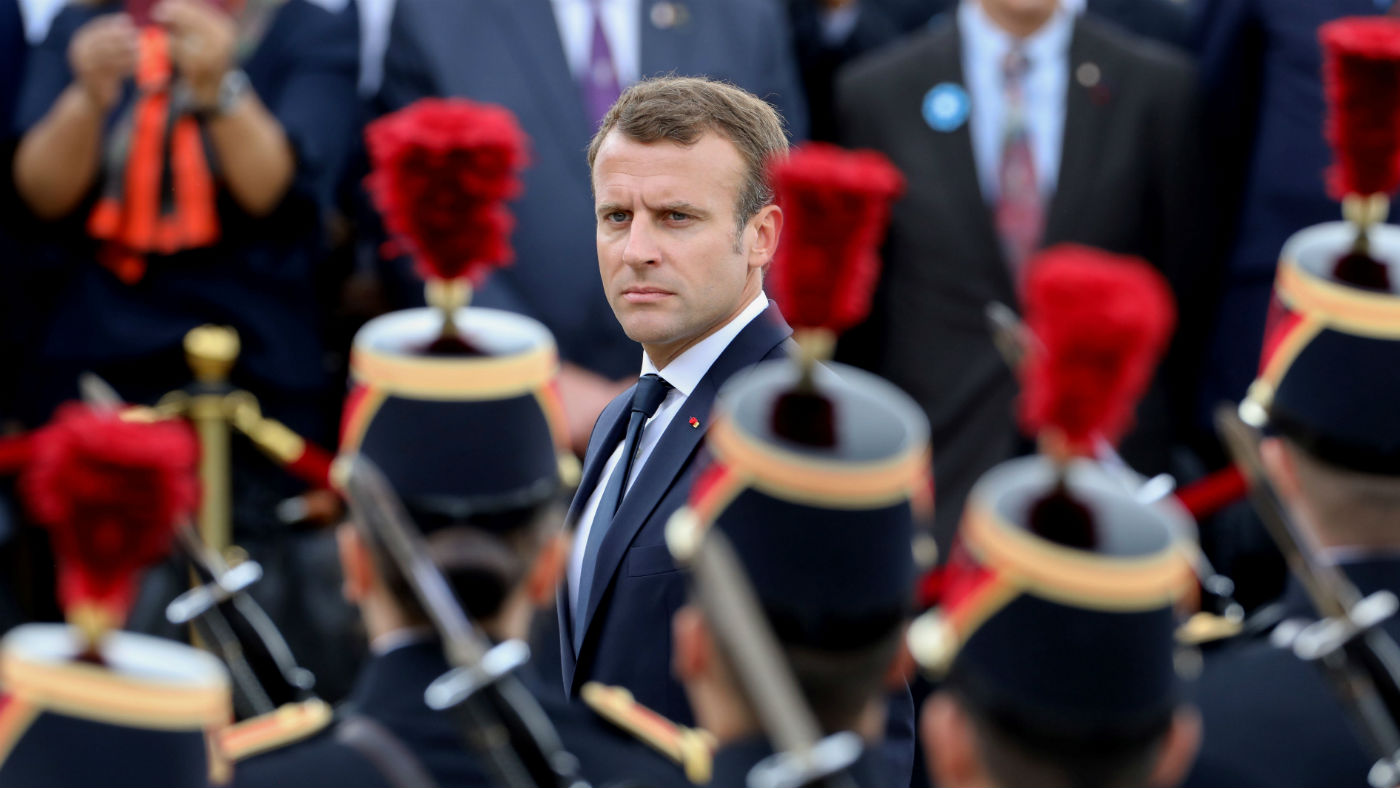Emmanuel Macron unveils European defence coalition
Ten countries sign up following French president’s call for a ‘real European army’

A free daily email with the biggest news stories of the day – and the best features from TheWeek.com
You are now subscribed
Your newsletter sign-up was successful
A coalition of ten European militaries ready to defend the continent’s borders has been unveiled in Paris, just days after Emmanuel Macron called for a “real European army”.
Finland has joined Germany, Belgium, Britain, Denmark, Estonia, the Netherlands, Spain and Portugal in the French-led initiative, which will see members collaborate on planning, on the analysis of new military and humanitarian crises, and on eventual military responses to those crises.
Proponents say the coalition would not conflict with the almost 70-year-old, US-dominated Nato alliance, but reflects in part concerns about a more isolationist United States under President Donald Trump.
The Week
Escape your echo chamber. Get the facts behind the news, plus analysis from multiple perspectives.

Sign up for The Week's Free Newsletters
From our morning news briefing to a weekly Good News Newsletter, get the best of The Week delivered directly to your inbox.
From our morning news briefing to a weekly Good News Newsletter, get the best of The Week delivered directly to your inbox.
Reuters reports that the European Intervention Initiative took official shape in Paris “after months of negotiations with Germany, who France wants at the centre of the force”.
The imminent departure from the EU of Britain, long opposed to EU military collaboration outside Nato, has revived talk of defence cooperation - as have concerns that Trump might prove less willing than his predecessors to come to Europe’s defence in the face of a newly assertive Russia.
Macron’s push to bring together a core 10-nation coalition of the willing “was born out of French impatience with the EU’s efforts at defence co-operation”, known as Permanent Structured Co-operation (Pesco) says The Economist.
The magazine says “Germany has been keen on this mechanism, which keeps efforts at joint European defence within existing EU structures. Its critics, though, regard Pesco as a low-ambition pact that ropes in too many countries [25 in total], including those with little interest in sending troops abroad, to be operationally useful.”
A free daily email with the biggest news stories of the day – and the best features from TheWeek.com
Coming just days after Macron called for a “real European army” to reduce dependence on the United States, and with the vocal support of senior figures in Brussels, the coalition agreement will once again raising the spectre of a European Army.
Long the bete noire of conservative Eurosceptics, Politico says part of the reason for the coalition is “to bind Britain into military cooperation as it leaves the EU”.
The news site reports that Theresa May “quietly endorsed the initiative at a Franco-British summit at the Sandhurst Military Academy in January but did not publicise the step to avoid antagonizing hard-line Brexiteers in her Conservative Party, to whom any idea of an 'EU army' is anathema”.
Nevertheless, a senior French source said: “It’s really important to have the British on board, not just because they have the most capable, rapidly deployable armed forces along with our own, but also because we share the same strategic culture and history of projecting force outside Europe”.
Debating whether the UK should continue to defend its Western European allies, as it did throughout the 20th century, or take a more detached position, RT Howard in the Daily Telegraph argues “there is one compelling reason why our strategic ties with Western Europe now deserve to be closer than ever before”.
“The reason is not that Western Europe is today confronted by threats any greater than before” Howard writes, but rather “because of the increasingly fragile, fractious state of the European Union.”